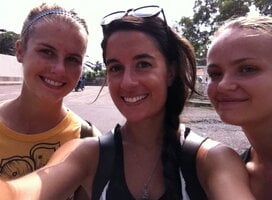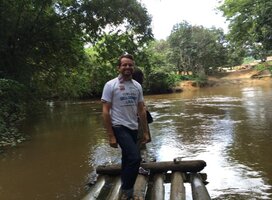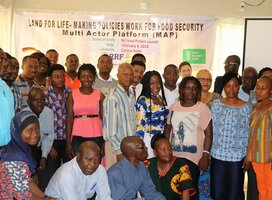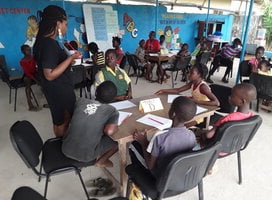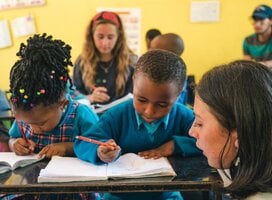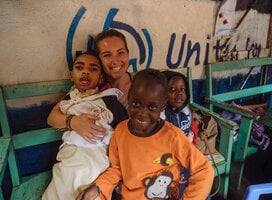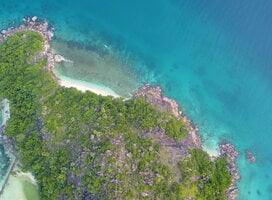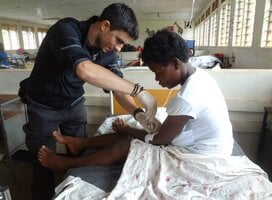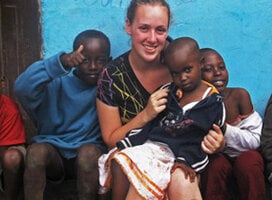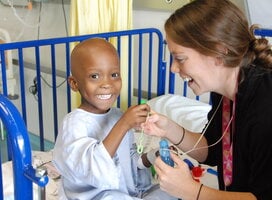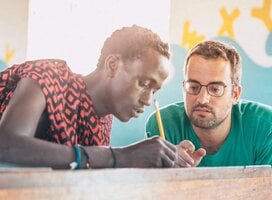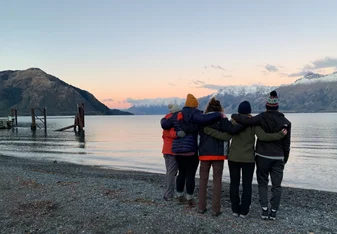Volunteer in Liberia
Liberia is a dynamic and fascinating nation, home to miles of pristine untouched rainforest, powdery white beaches, and bustling cities full of life and commerce. It is also, however, a country deeply affected by two recent civil wars.
Volunteers in Liberia will be working within some of West Africa’s most underserved communities, helping the country rebuild after the many disasters that have afflicted it. There is a particular demand for assistance in healthcare after the country’s medical resources were decimated in the wars and then overextended during the outbreak.
Perhaps the best thing about Liberia is the sense of hope that its people still embody. Despite everything it has been through, this is a country that continues to look forward. By volunteering here, you will be contributing to Liberia's bright future and making a real difference at a pivotal time in the country's history.
Liberia has a long history of conflict, which has left behind many issues to be addressed. Charitable organizations in the country tackle all sorts of socioeconomic problems, with the three below being some of the most prominent.
Healthcare
The combination of two civil wars and an Ebola outbreak in 2014 has had a devastating effect on Liberia’s healthcare infrastructure. After the wars, 95% of the country’s health facilities had been destroyed, leaving behind about 50 doctors in the entirety of the country. There is still much work to do to repair the damage left behind by the conflict.
Volunteers with medical experience can help provide life-saving care to communities throughout the country, while others can help through education initiatives, outreach programs, administrative tasks, or even construction.
Women’s Issues
Despite having the only democratically-elected female leader on the African continent, Liberia can still be a difficult and dangerous place for women and girls. Rape and sexual assault are common and education for young girls is relatively rare.
As a volunteer, you can be involved in a variety of programs that offer protection, education, and empowerment to women and girls, including enterprise schemes, schools, and women’s shelters.
Youth Development
Youth programs in Liberia aim to provide young people with cultural and social experiences that keep them away from crime and help them build a better future for themselves and their country. Several of these organizations aim to empower the young people of Liberia to improve their community by teaching them about civic engagement and social business.
As a youth development volunteer, you could be involved in workshops, events, mentorship schemes, or classroom teaching.
Liberia is a beautiful and vibrant country, with a culture largely modeled on the U.S. However, infrastructure problems and widespread deprivation can make it difficult for foreigners to adjust at first. Your volunteering organization will support you through this process until you feel at home in the country.
Some volunteering placements in Liberia will be based in remote towns or villages, but most organizations are based in one of the larger cities.
Monrovia is the capital of Liberia and its cultural and economic center. It suffered greatly during the civil wars, but is now a vibrant place, with signs of prosperity and hope for a better future. It’s not the prettiest place in the country, but by far the most exciting.
Salala contains several camps for internally displaced refugees from both civil wars. Many organizations operate here to provide support and relief, including education, healthcare, and enterprise initiatives.
Robertsport is a quiet coastal town in Liberia that has acquired a name for itself on the surfer scene. An ideal choice for volunteers looking to try out some waves, Robertsport is also home to healthcare and community development initiatives.
Visas
You will need a visa to volunteer in Liberia, which you should apply for at least two weeks before your departure. If you are volunteering for between 30 and 90 days, you will need a Temporary Stay stamp. If you plan to volunteer for longer, you will need to apply for a Resident’s Permit. Get in touch with your local Liberian Embassy for more detailed guidance.
Cost of living
The cost of living in Liberia is quite low. As long as you shop from local vendors, you can feed yourself for under $10 a day, less if you have the ability to cook your own meals at your accommodation.
Housing & Accommodation
Housing will almost always be provided by your volunteering organization. The standard of living will vary, but be prepared for very simple arrangements. It is important to understand that the country has experienced devastating damage and that some basic comforts are rare outside of Monrovia.
If your organization does not offer accommodation, your best option will be to stay with a host family. This will cost about $100-$150 a month and is a great way to get fully immersed in everyday Liberian life and culture.
